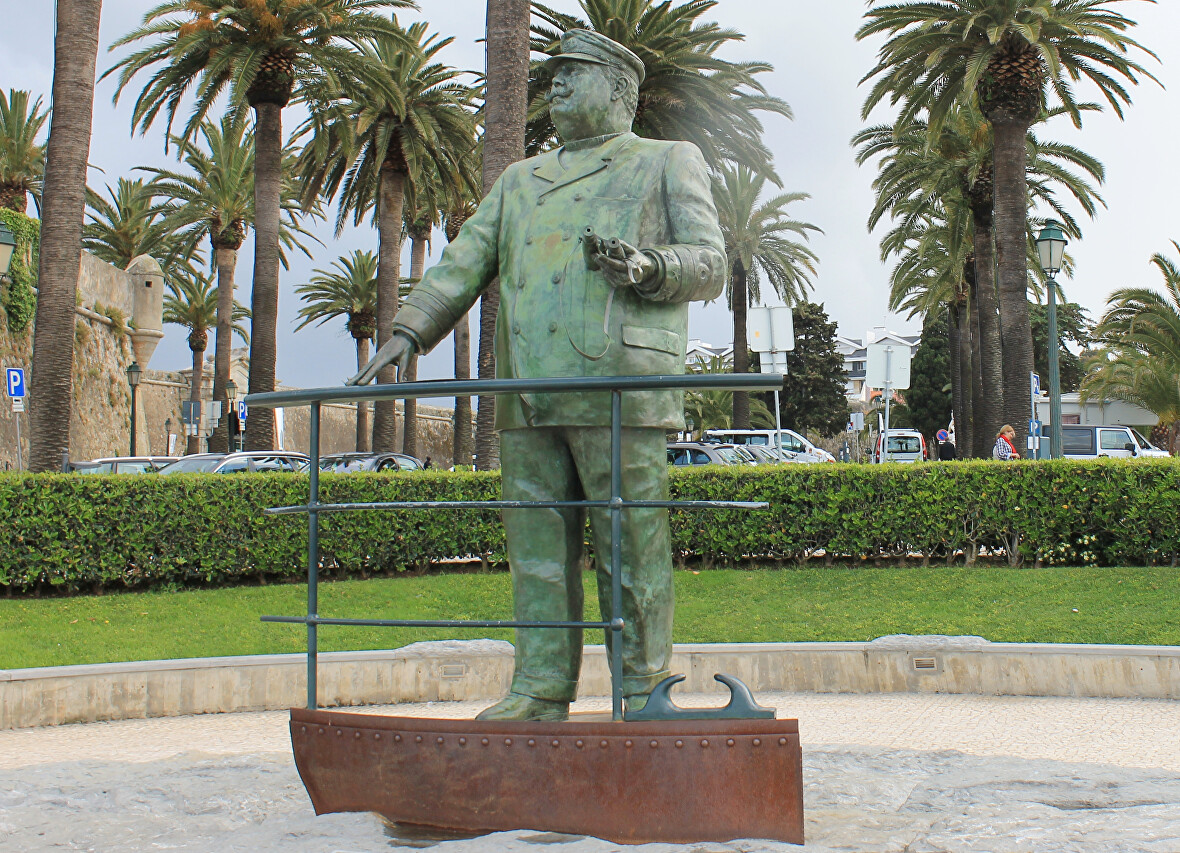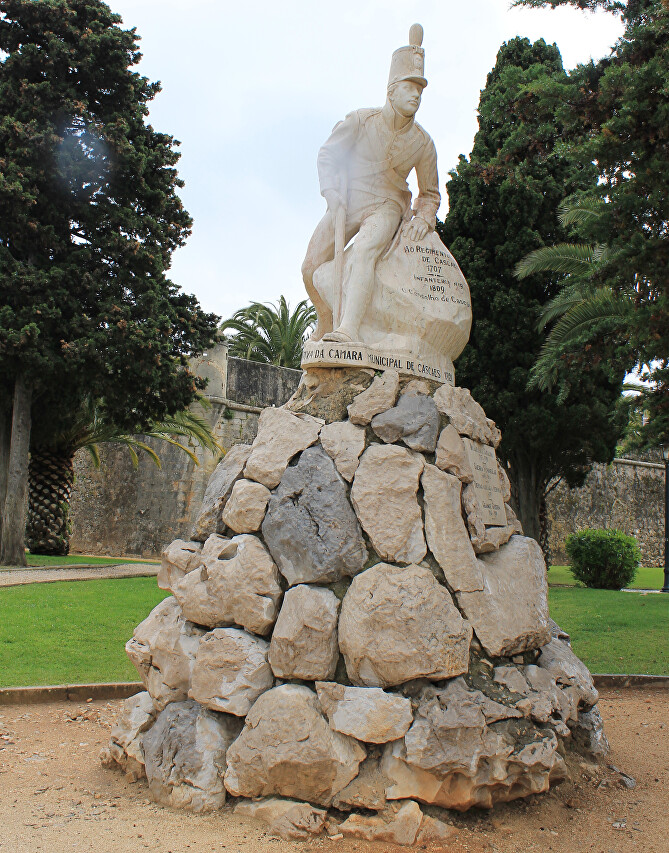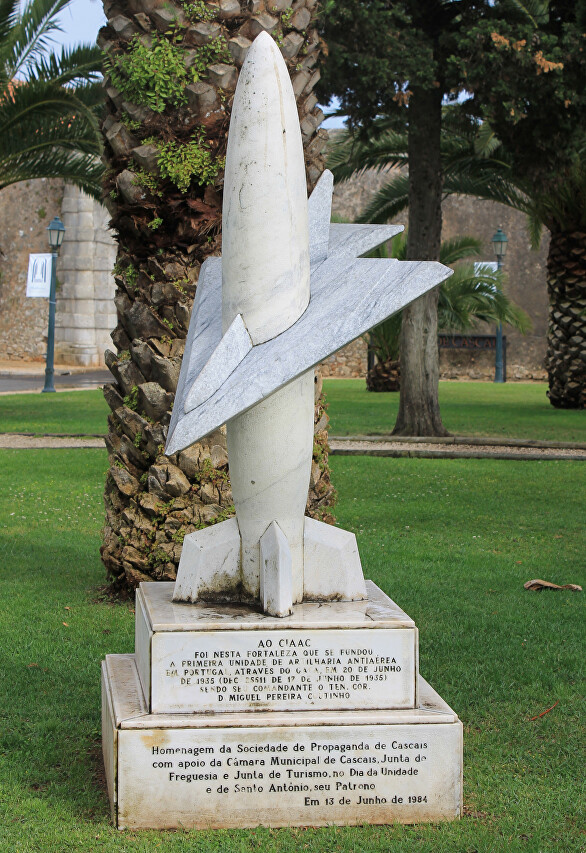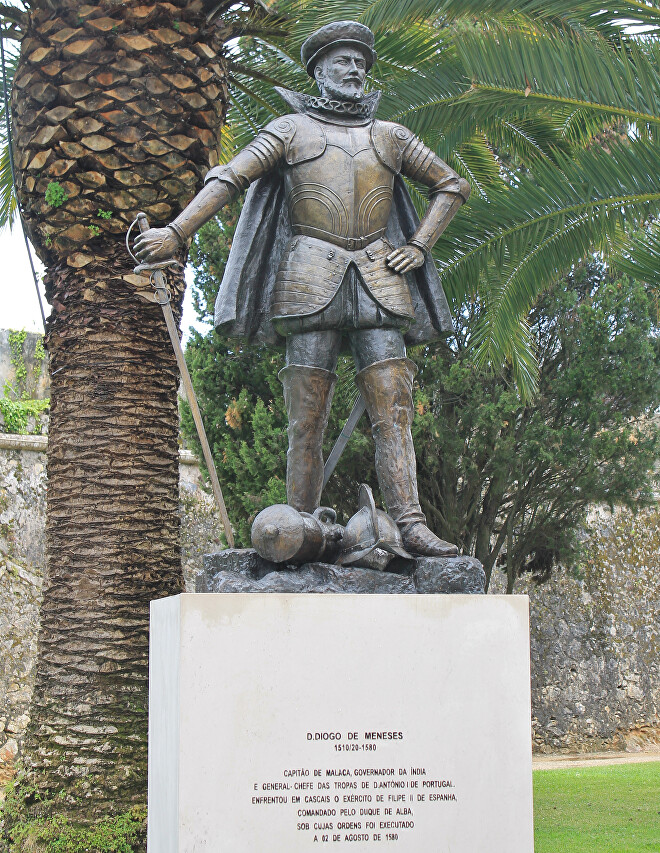Monuments at the Cascais Castle
In the palm grove in front of the fortress gate there are several interesting monuments: closer to the embankment, you can see a bronze sculpture of a man in the form of a captain with binoculars in his hand, standing at the railing on board the ship. This is Carlos I, King of Portugal since October 19, 1889. During his reign, Portugal suffered a series of diplomatic defeats, ceding control of its African colonies to England, and the country itself began to rapidly lose its position in international politics, becoming dependent on England. In the country itself, things were also not going well, and in 1892 the state was declared bankrupt. Ten years later, history repeated itself. All this caused mass discontent, in response to which Carlos introduced a de facto military dictatorship. On February 1, 1908, an assassination attempt was made on the king, in which he and his eldest son, Luis Filipe, were killed. In this regard, Carlos I is known as the "martyr" (Carlos I o Martirizado). But the king also left a good memory of himself, being "a highly cultured person, a connoisseur of the arts and a patron of science," as Portuguese President Aníbal António Cavaco Silva said at the unveiling of the monument in 2006.

The sculpture of a soldier made of white marble recalls the Napoleonic Wars and is dedicated to the 19th infantry regiment, formed from the inhabitants of Cascais. The regiment distinguished itself on September 27, 1810, at the Battle of Busaku, where Anglo-Portuguese troops under Lord Wellington, after suffering heavy losses, still defeated Napoleon's army.

On June 20, 1935, an air defense artillery battery was placed in the Cascais fortress. Portugal avoided participation in World War II, so the battery did not perform any feats. A monument depicting a cut-up aerial bomb was erected on the occasion of the battery's fiftieth anniversary.

Another famous native of Cascais, Diego de Meneses (Diogo de Meneses). From 1576 to 1578, he was governor of the Indian possessions of Portugal. During the Spanish war, Setubal was captured by the Castilians while defending the castle and beheaded by order of the Duke of Alba.
